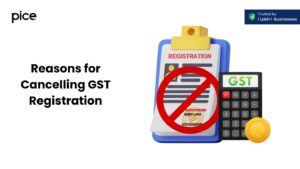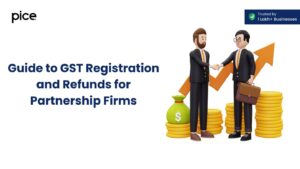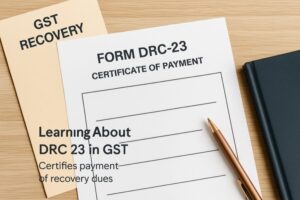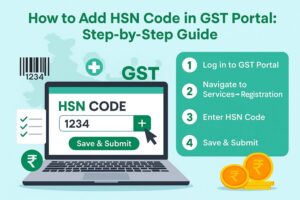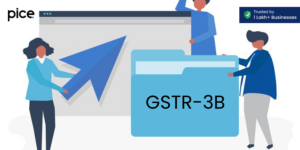GST on Unpaid Invoices: What Businesses Need to Know
- 2 Jul 25
- 8 mins
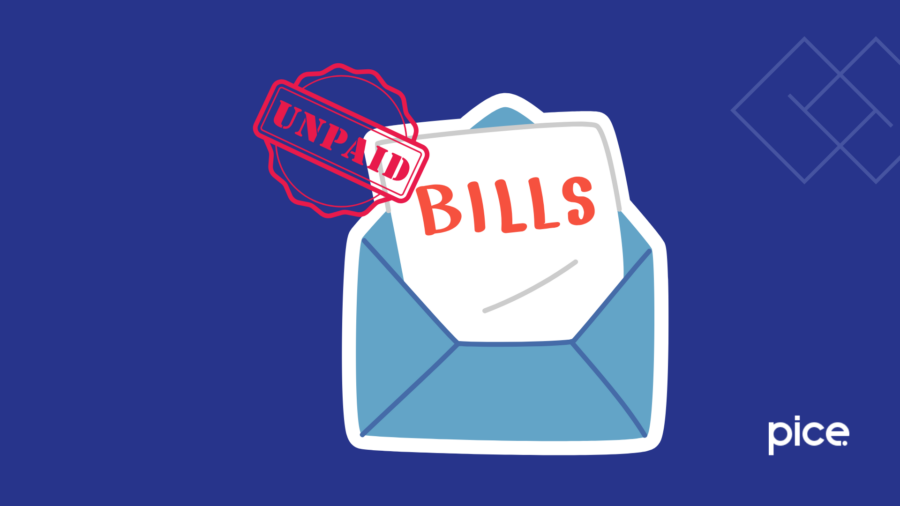
GST on Unpaid Invoices: What Businesses Need to Know
- The Relationship between GST and Pending Payments
- How You Can Claim Input Tax Credit?
- Rule 37: What the GST Act Says About Payment Delays
- Amendment in Subrule (1) of Rule 37
- Impact of Unpaid Invoices Under Income Tax Rules
- Why Timely Payment is Good for Business Health?
- What to Do If You Missed the 180-Day Window?
- Key Takeaways on GST for Unpaid Invoices
- Conclusion
Key Takeaways
- Input Tax Credit (ITC) must be reversed if vendor payments aren't made within 180 days of the invoice date.
- Amendments to Rule 37 now require full invoice payment to retain ITC—partial payments no longer suffice.
- Delayed payments attract not just ITC reversal but also interest charges under GST law.
- Late or missed payments can cause mismatches between GST filings and income tax returns, risking audits.
- Timely vendor payments protect your business from compliance issues, cash flow disruption, and legal trouble.
Late payments are a part of doing business, but when it comes to Goods and Services Tax (GST), unpaid invoices can trigger serious consequences. Businesses may overlook a pending payment, but tax authorities don’t.
The GST framework imposes strict rules around invoice timelines, and missing them can lead to penalties, interest charges, and even the forfeiture of input tax credits. To stay compliant and financially sound, it’ is essential to understand how GST on unpaid invoices is treated.
In this guide, we will break down the key rules, risks, and proactive steps businesses can take to avoid unnecessary losses and stay on top of their tax game.
The Relationship between GST and Pending Payments
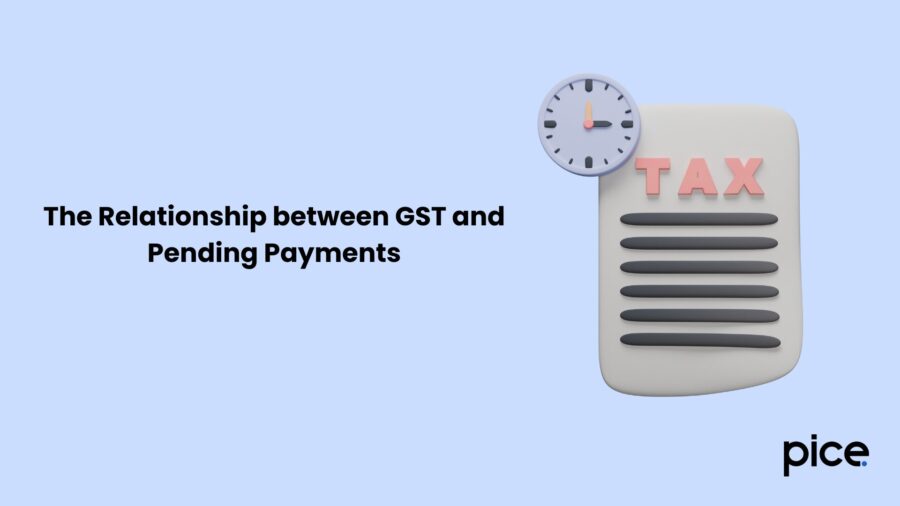
Many business-to-business transactions involve delayed payment schedules. Although this delay might seem harmless, it has a direct impact under GST law.
Under Section 16(2) of the CGST Act, businesses can obtain input tax credit benefits for goods and services received. However, you can claim ITC only if you pay your supplier, including GST, within 180 days from the invoice date.
Your ITC for that transaction will be reversed when payment to vendors does not occur within the specified time. This means that the law isn't just about paying taxes but also about timely payments to vendors.
How You Can Claim Input Tax Credit?
Businesses receive substantial tax relief through the Input Tax Credit (ITC). The system allows businesses to subtract their purchase tax payments from their sales tax obligations. GST on unpaid invoices comes with specific requirements that companies need to understand.
When payment to your vendor exceeds 180 days after the invoice date, you must cancel all ITC claims. Yes, you read that right. Failure to pay invoices on time will result in the loss of your input tax benefits.
Businesses must monitor vendor payment schedules to prevent losing their Input Tax Credit benefits. Your GST compliance stands directly impacted by how quickly you make your payments.
Rule 37: What the GST Act Says About Payment Delays
Rule 37 of the CGST Act 2017 deals with situations where the buyer delays payment. It says that if the payment of consideration is not made within 180 days from the invoice date, the buyer must:
- Reverse the ITC claim.
- Pay interest for the period of delay.
The legal framework establishes prompt payment processes throughout supply chain operations. The tax system suffers disruptions when payments remain unpaid or delayed, so the law prevents these payment issues.
You can recover your ITC after the payment reaches the vendor by reversing it initially. But why invite unnecessary reversals and interest? It's always better to ensure the payment of vendor invoices on time.
Amendment in Subrule (1) of Rule 37
Implementing Rule 37(1) amendments significantly modified the system. Previously, non-payment of invoice amounts was the only issue under Rule 37. Under the current rules of Rule 37(1), the Indian Tax Authority can reverse ITC even when companies make partial payments instead of full fees.
The new amendment states that any partial payment of an invoice will result in an ITC loss. The updated rule creates stricter conditions, which reduce the available flexibility. Timely management of payment forms, vendor settlements, and prompt payments has become an essential business practice.
Impact of Unpaid Invoices Under Income Tax Rules
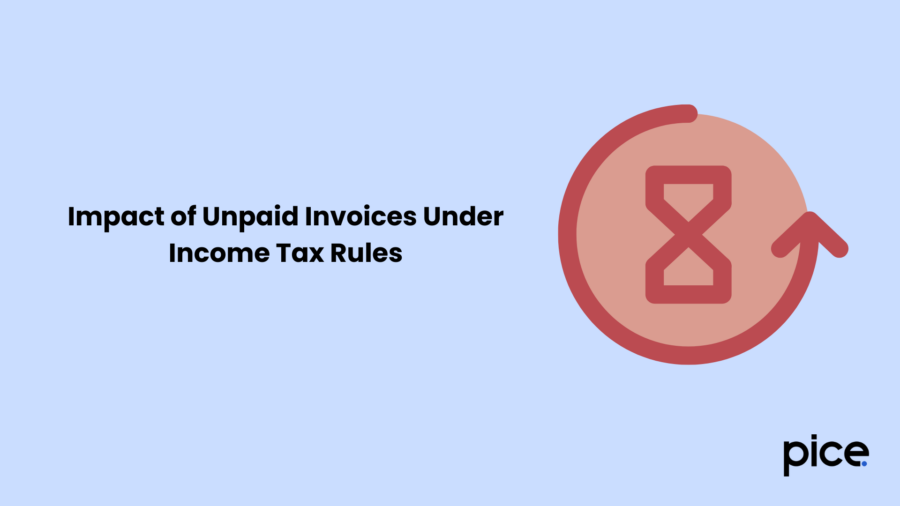
Not just GST, but even under Income Tax law, unpaid payments can cause trouble.
Businesses operating with cash accounting methods must record revenue when they receive payment funds. Under the accrual system, businesses record expenses and income based on their due dates rather than payment transactions.
This impacts your business compliance. When GST filings differ from income tax returns, your business faces the risk of audits and notices. Thus, late or non-payment/short payment disrupts GST and affects direct tax and secretarial compliance.
Why Timely Payment is Good for Business Health?
Making payments to vendors on time is more than just following the law. It builds trust, strengthens supply chain relationships, and avoids last-minute rushes in compliance work.
If you manage payments well:
- You avoid losing ITC.
- You prevent unnecessary interest costs.
- You stay clear of legal troubles.
- You maintain a strong reputation with suppliers.
Businesses that ensure invoice payment within the due date stay within the bounds of GST law and Income Tax rules.
Today, many companies use tools like complete supply chain solution software, ERP e-TDS return filing solutions, and innovative vendor management systems to streamline supply payments. This keeps cash flow steady and helps manage taxes easily.
What to Do If You Missed the 180-Day Window?

Mistakes happen, but GST allows you to make amends. Here is how you can do it:
- Reverse the ITC that pertains to unpaid invoices.
- Add it to your output tax and pay it in the same tax period.
- Pay interest for the delay.
- Once you finally pay for the supply, you can reclaim the ITC.
But remember, reclaiming is only possible if the supplier has also fulfilled its obligations: filing GSTR-1 and paying its tax. It is a tight cycle that relies on timely payments.
Key Takeaways on GST for Unpaid Invoices
Here is a quick wrap-up to remember:
- You must pay GST on unpaid invoices even if the customer has not paid you.
- If you don't make vendor payments within 180 days, you must reverse the ITC claim.
- Changes in Rule 37 mean even short payments can trigger ITC reversal.
- Late or missed payments can impact both GST and Income Tax filings.
- Timely payments help maintain business reputation and compliance.
Delayed payments and breaks in input tax credit claims can significantly increase business costs. Therefore, it is wiser and cheaper to make payments quickly.
Conclusion
The rules around GST on unpaid invoices are strict but manageable with a bit of care. Businesses that maintain timely invoice payment can access complete ITC benefits and improved cash flow with stress-free operations.
Nowadays, every business should track payment periods while monitoring tax obligations through automated software systems designed for payment liability tracking.
💡If you want to streamline your invoices and make payments via credit or debit card or UPI, consider using the PICE App. Explore the PICE App today and take your business to new heights.
 By
By 





